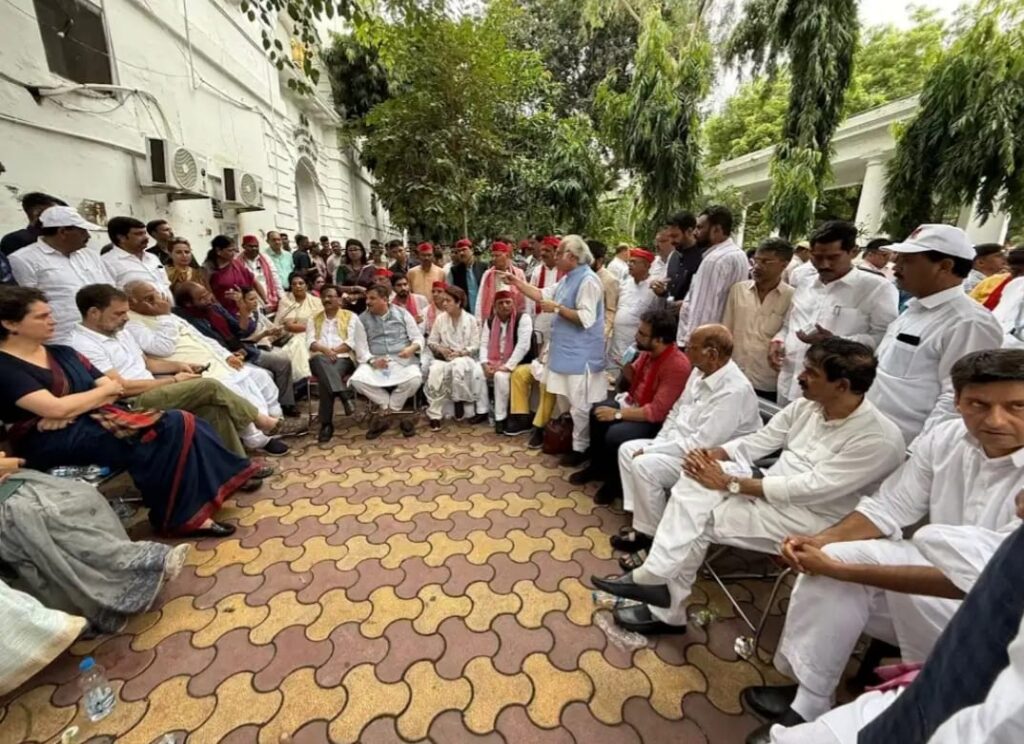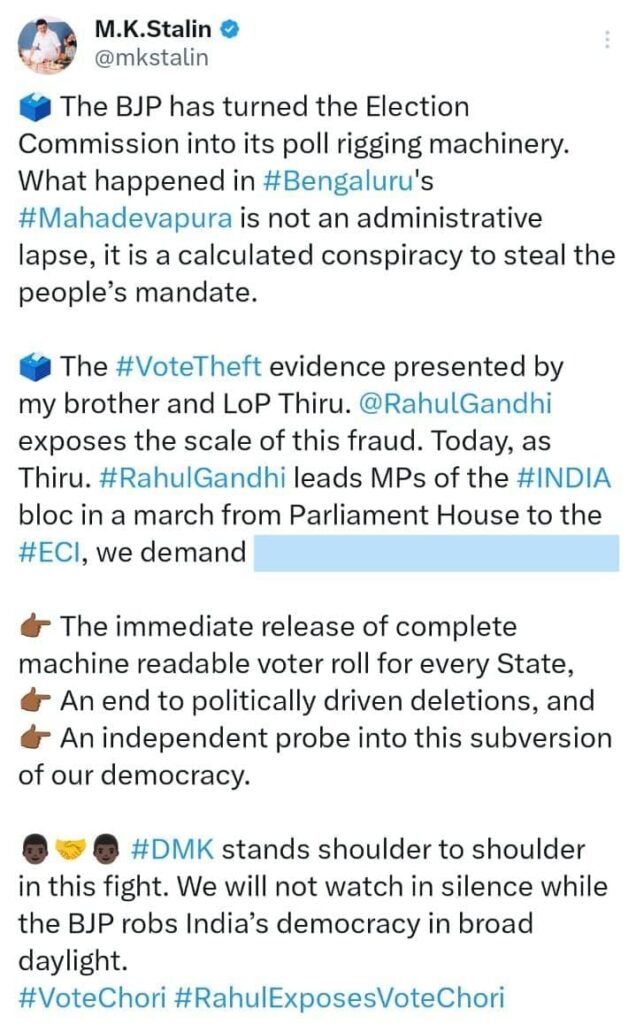
OPPOSITION ACCUSES AND MARCH TO HIGHLIGHT ECI TURNED INTO BJP’S “VOTE-RIGGING MACHINE”
NEW DELHI: The Modi government in Delhi faced a high-voltage political challenge on Monday as over 300 Members of Parliament from the opposition parties took out a protest march, accusing the Election Commission of India (ECI) of being converted into a “poll-rigging machinery” for the BJP.
The march—described by participants as a “show of unity and strength”—was led by Leader of Opposition in the Lok Sabha Rahul Gandhi, his Rajya Sabha counterpart Mallikarjun Kharge, Samajwadi Party chief Akhilesh Yadav, and DMK leader T.R. Baalu. Several other INDIA alliance MPs walked shoulder-to-shoulder in the capital, with the stated aim of holding Prime Minister Narendra Modi and Union Home Minister Amit Shah directly accountable for alleged electoral malpractice.
Though Delhi Police foiled the march from reaching the election commission by detaining the MPs at the Parliament Street police station and released them later in the afternoon to let the MPs reach both the Houses of Parliament to create ruckus and forcing adjournments. Both the Houses were adjourned in the forenoon just in less than 15 minutes to assemble from 2 PM.
One of the more striking moments of the day was the participation of Aam Aadmi Party’s Rajya Sabha MP Sanjay Singh, who joined with all his fellow MPs despite AAP’s earlier exit from the INDIA bloc. Political observers noted that AAP’s decision to participate underscored the gravity of the issue and the common opposition front against the ECI’s actions.
Focus on SIR in Bihar
The immediate spark for the protest was the ongoing State-wide special Intensive Revision (SIR) of electoral rolls in Bihar, which opposition leaders allege is a BJP-backed ploy to manipulate voter lists in its favour. The Modi government has extended full support to the SIR exercise despite objections from several political quarters.
ALL EYES ON CHANDRABABU NAIDU
Interestingly, all eyes are now on Telugu Desam Party (TDP) chief and Andhra Pradesh Chief Minister N. Chandrababu Naidu, a key ally in the NDA government at the Centre. While part of the ruling coalition, Naidu has openly opposed the SIR process in Bihar. Just last month, his party submitted a memorandum to the Election Commission urging it to halt the exercise, warning it could undermine the integrity of the electoral process.
South India’s Delimitation Concerns
The issue has also reignited memories of earlier disputes over the proposed delimitation of Lok Sabha constituencies. In its present form, the delimitation process has been opposed by several southern states—including Andhra Pradesh, Tamil Nadu, and Kerala—on the grounds that it penalises states that have effectively controlled their population growth. The BJP-led Centre had previously resisted this delimitation plan, calling it discriminatory toward southern states.
By linking the Bihar SIR exercise to the broader history of contested electoral reforms, opposition leaders are seeking to frame the battle as not just about one state, but about the fairness of India’s democratic process itself.
As the INDIA bloc steps up its campaign and unexpected players like AAP join hands for specific causes, the political spotlight now turns to Naidu—whose stance could influence both the trajectory of the Bihar SIR controversy and the unity of the NDA in the months ahead.
The INDIA bloc convened a joint meeting of all opposition parties in the evening at 4.30 pm at the AICC office at Akbar Road, followed by a dinner, to jointly organise a nationwide campaign against the election frauds and electoral rolls manipulation.
[Writer is a Senior Journalist and Political Commentator]






